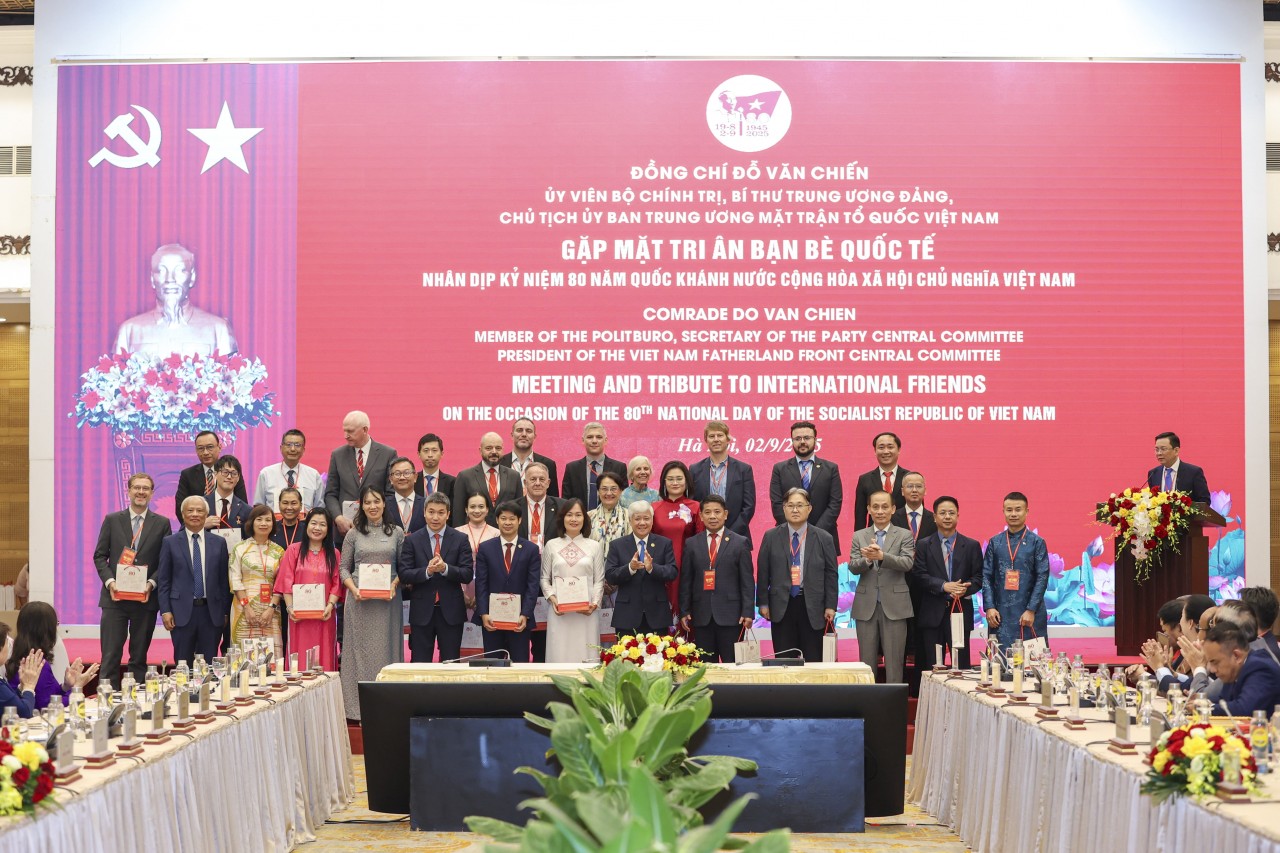Promoting the Strength of People-to-People Diplomacy in the New Context
| Vietnam-China Youth Exchange: Continuing Spirit of Revolutionary Generation | |
| VUFO Delegation Visits Historical Site in Thai Nguyen |
During the resistance wars for national independence, freedom, peace, and reunification, through advocacy and information dissemination activities, people-to-people diplomacy played a vital role in shaping an international people’s front that opposed colonial and imperial wars of aggression. This solidarity movement united, supported, and assisted the Vietnamese people in an unprecedentedly powerful and widespread manner, becoming a crucial factor that contributed to the ultimate victory of the courageous and resilient struggle of the Vietnamese army and people - the complete liberation of the country and the reunification of the homeland.
After national reunification, and particularly since the launch of the Doi moi (Renewal) process, people-to-people diplomacy has proactively “taken the lead and paved the way,” working hand in hand with the Party’s external relations and State diplomacy to break through blockades and embargoes, heal the wounds of war, enhance mutual understanding, and remove obstacles to normalize relations with key partners. It has helped transform former adversaries into partners, expand relations, strengthen friendship, and mobilize international public support to assist Viet Nam in overcoming war consequences, rebuilding the nation, advancing international integration, and safeguarding national interests.
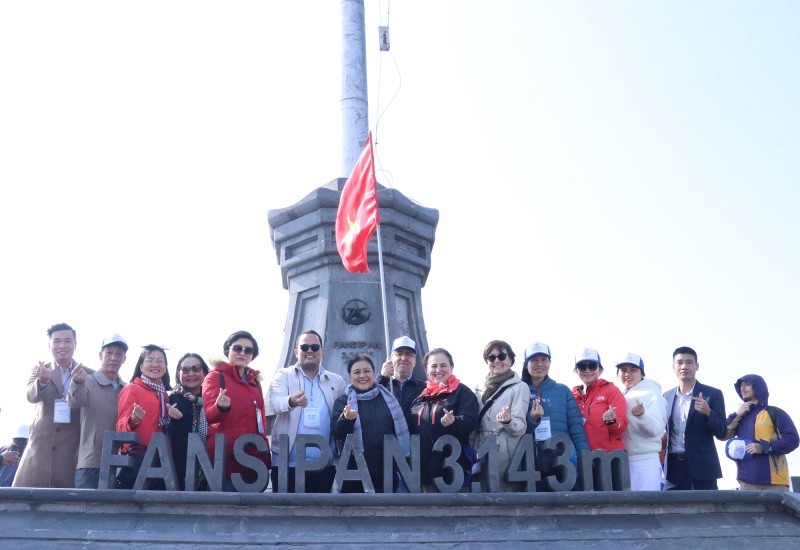 |
| Ambassador Nguyen Phuong Nga and the delegation of foreign guests to the summit of Mount Fansipan, Viet Nam. (Photo: Thu Ha) |
The achievements of the Doi moi process over the past years, along with Viet Nam’s growing strength and standing, have brought many advantages to people-to-people diplomacy. However, the profound, rapid, and transformative changes in global and regional circumstances also present new challenges. These include major power competition, unilateralism, the rise of far-right and extremist nationalism, territorial and maritime sovereignty disputes, and non-traditional security threats. In this evolving context, the task of mobilizing international solidarity and defining new banners to rally forces for global people’s movements and people-to-people diplomacy has become increasingly complex, due to deep divisions and polarization arising from differing goals and interests within international people’s movements, as well as the influence and manipulation of major powers.
In this highly complex context, as Viet Nam enters a new strategic phase of national development, the 13th National Congress of the Communist Party of Viet Nam for the first time clearly stated the task to: “Continue to promote the pioneering role of external relations in creating and maintaining a peaceful and stable environment, mobilizing external resources for national development, and enhancing the country’s position and prestige.” It also emphasized the goal of “building a comprehensive and modern Vietnamese diplomacy with three pillars: Party-to-Party diplomacy, State diplomacy, and people-to-people diplomacy.” This is a reaffirmation of the role, position, and strength of people-to-people diplomacy, as well as the importance of close coordination among the three pillars of external relations to serve the highest goal of “Securing the highest interests of nation and people on the basis of the United Nations Charter and international law, equality, cooperation, mutual benefit”.
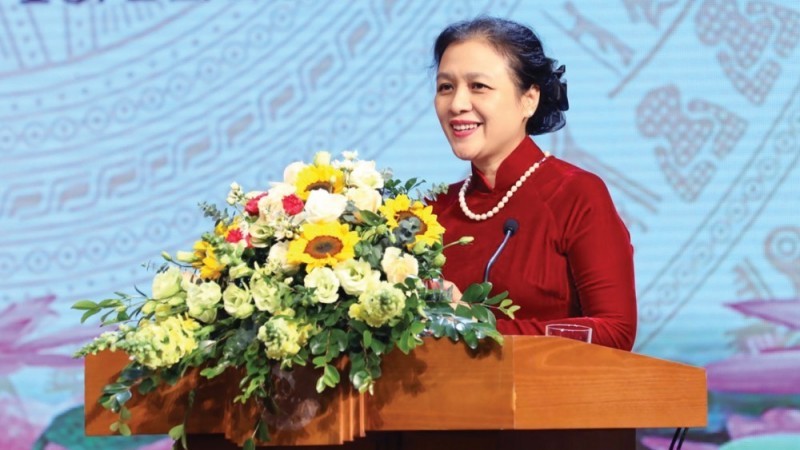 |
| Ambassador Nguyen Phuong Nga, Former President of the Viet Nam Union of Friendship Organizations. (Source: VUFO) |
In implementing the Party’s line and the guidance of General Secretary To Lam: “Diplomacy in the new era has the highest goal of securing the highest interests of the nation and the people, for a strong Party, for a prosperous Socialist Republic of Viet Nam with an important role and position in global politics, the world economy, and human civilization, and for the well-being and happiness of the people,” we must continue to enhance awareness of the significance, role, and position of people-to-people diplomacy. At the same time, it is essential to innovate in mindset, content, and methods of operation to fully harness its strengths, focusing on the following priorities:
First, to consolidate, expand, and improve the effectiveness of the international friendship network. While strengthening relations with traditional friends, it is important to promote the bridging role of people-to-people diplomacy by actively expanding relations with foreign people’s organizations, research institutes, scholars, professional associations, businesses, and youth groups, particularly in neighboring and major countries to mobilize international resources and foster the solidarity and support of the world’s peoples for Viet Nam’s cause of national construction and defense.
Second, to broaden the scope and areas of operation while enhancing the quality and effectiveness of activities. It is essential to link peace, solidarity, friendship, and people-to-people cooperation activities with the promotion of development cooperation in such fields as economy and trade, science and technology, and culture. These efforts should aim to mobilize resources in finance, knowledge, and technology to effectively contribute to the realization of the country’s sustainable development goals.
Third, to actively promote Viet Nam’s role in multilateral forums. It is important to study and propose new multilateral cooperation initiatives, and to proactively and selectively participate in international, inter-regional, and regional people’s mechanisms, networks, and organizations. Through such engagement, Viet Nam can garner international support, advance and protect national interests, particularly on issues of shared concern such as water security, human security, sustainable development, democracy, human rights, and border and territorial matters, aligning with the common interests of the peoples of the world and the region, thereby enhancing the nation’s global standing.
Fourth, to actively innovate operational methods and increase the appeal of people-to-people diplomacy. This includes organizing people’s forums, cultural, artistic, musical, and sports exchanges, and charitable activities involving intellectuals, scholars, influential public figures, and community tourism combined with volunteer programs. It is also important to strengthen youth engagement between Viet Nam and other countries through student, volunteer, and internship exchange programs, as well as to enhance the application of information technology and artificial intelligence in people-to-people diplomacy activities.
Fifth, to consolidate and strengthen the system and organizational structure of the people-to-people diplomacy apparatus in accordance with the demands of the new context. Closer coordination among the three pillars of diplomacy must be ensured. The Viet Nam Union of Friendship Organizations, as the specialized force in people-to-people diplomacy, should play a leading role in improving operational efficiency, enhancing coordination, and mobilizing the collective strength of people’s organizations under the Viet Nam Fatherland Front at both central and local levels to implement external affairs tasks. A team of capable, dedicated, and professional people-to-people diplomacy officers should be developed through comprehensive training in expertise, foreign languages, skills, information technology, and culture. Moreover, personnel engaged in people-to-people diplomacy should be entitled to the same regimes and policies as those in other external affairs agencies.
With pride and joy in the remarkable achievements attained by those engaged in people-to-people diplomacy, including the Viet Nam Union of Friendship Organizations over the past 75 years, we have every confidence that people-to-people diplomacy will continue to uphold its glorious tradition, renew itself vigorously, and adapt to the requirements of the new context. As General Secretary To Lam emphasized: “In the new era, the era of national rising, Viet Nam’s diplomacy must reach new heights.” With creativity and proactiveness, people-to-people diplomacy will successfully fulfill its assigned tasks, contributing to the realization of the country’s development goals and to the promotion of peace, cooperation, and friendship among the peoples of the world.
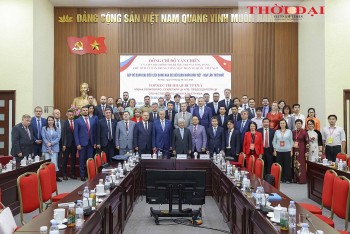 | First Vietnam-Russia People’s Forum Strengthens Bonds of Friendship and Trust On October 1, at a meeting with the delegation of the Russian Federation attending the First Vietnam-Russia People’s Forum, Politburo Member, Secretary of the Communist ... |
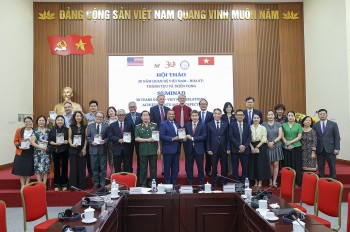 | Vietnam-US Relations: 30 Years of Cooperation and the Path Ahead On October 2 in Hanoi, the Viet Nam Union of Friendship Organizations (VUFO), in cooperation with the US Embassy in Vietnam, held a seminar entitled ... |
Recommended
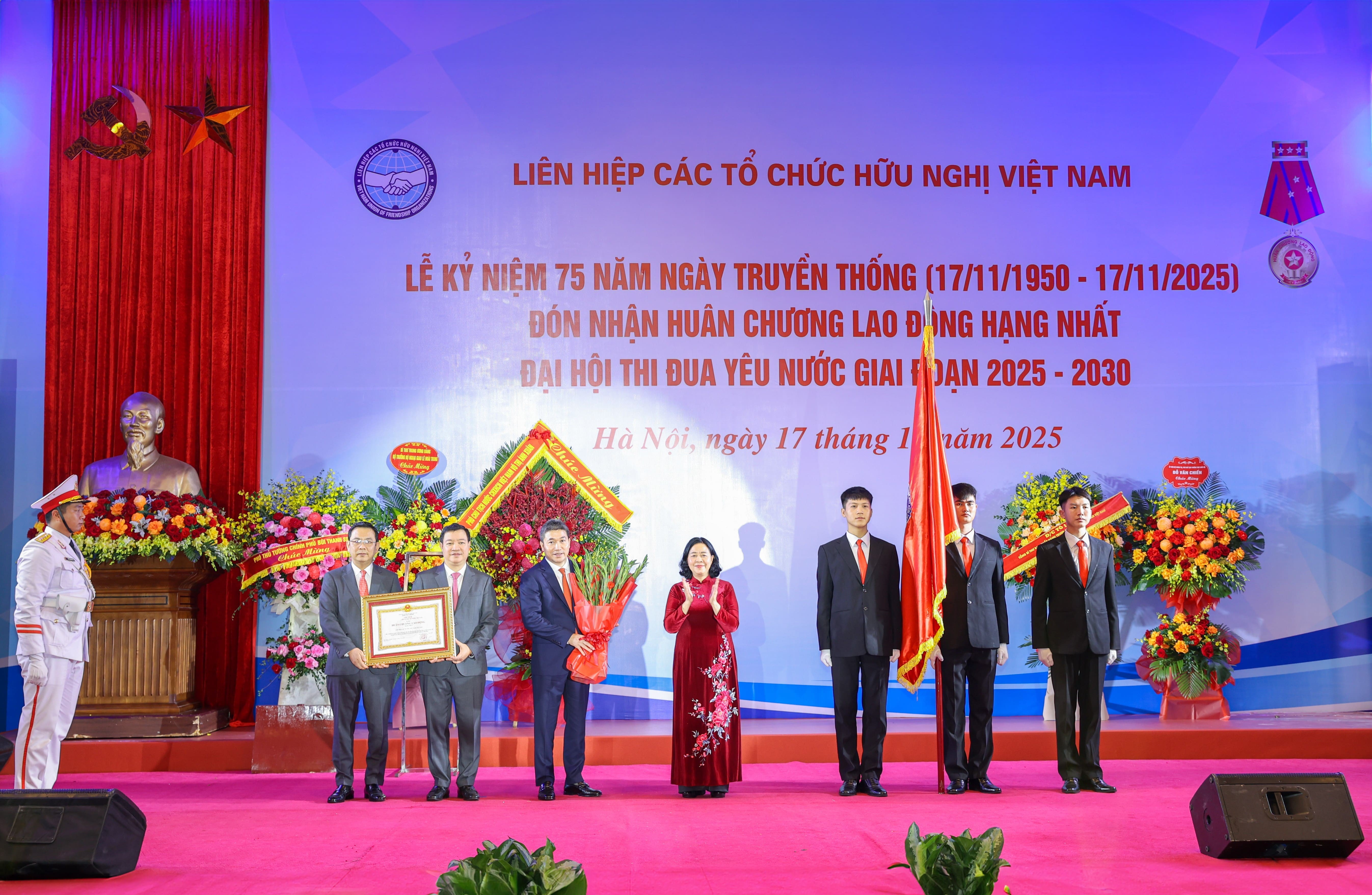 Friendship
Friendship
People-to-People Diplomacy: Change to Reach Further
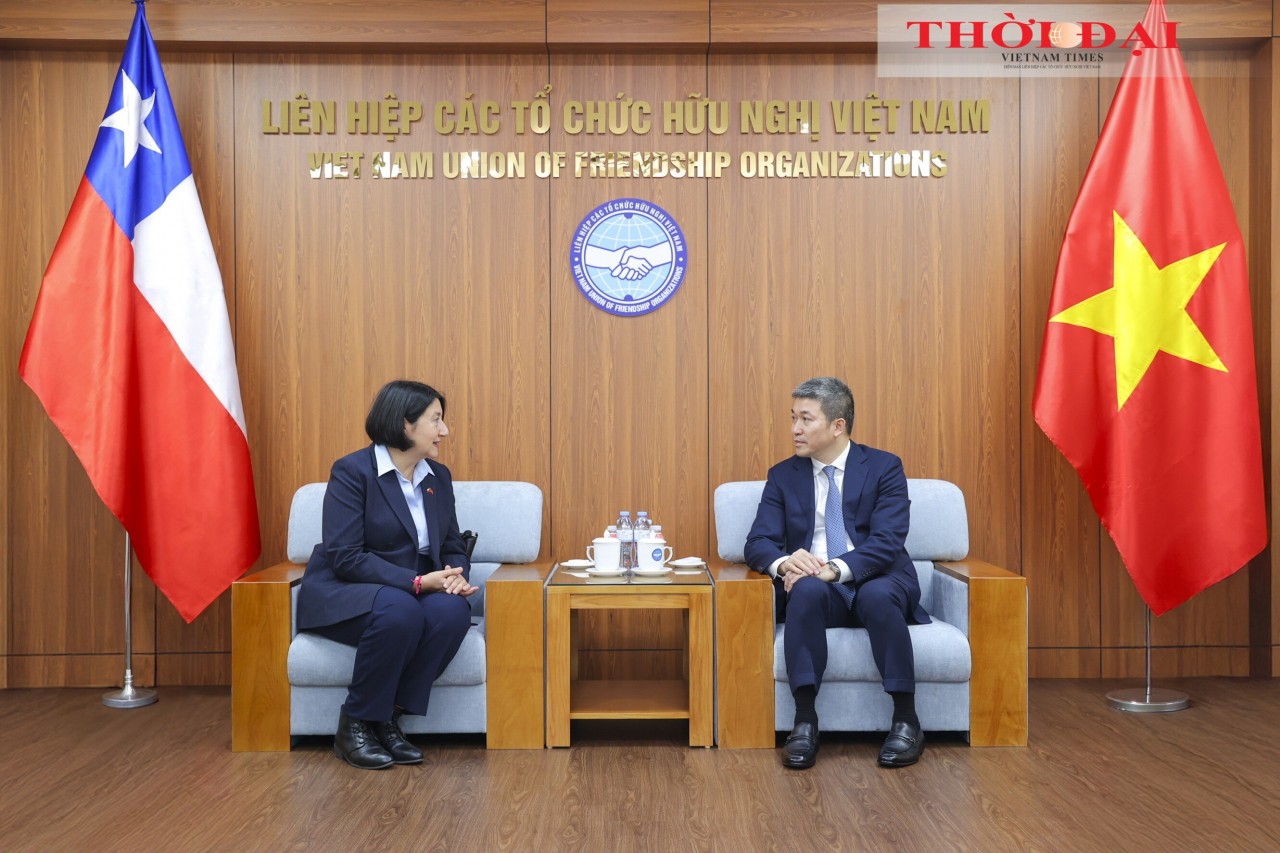 Friendship
Friendship
Promoting People-to-People Cooperation on the Occasion of the 55th Anniversary of Vietnam-Chile Relations
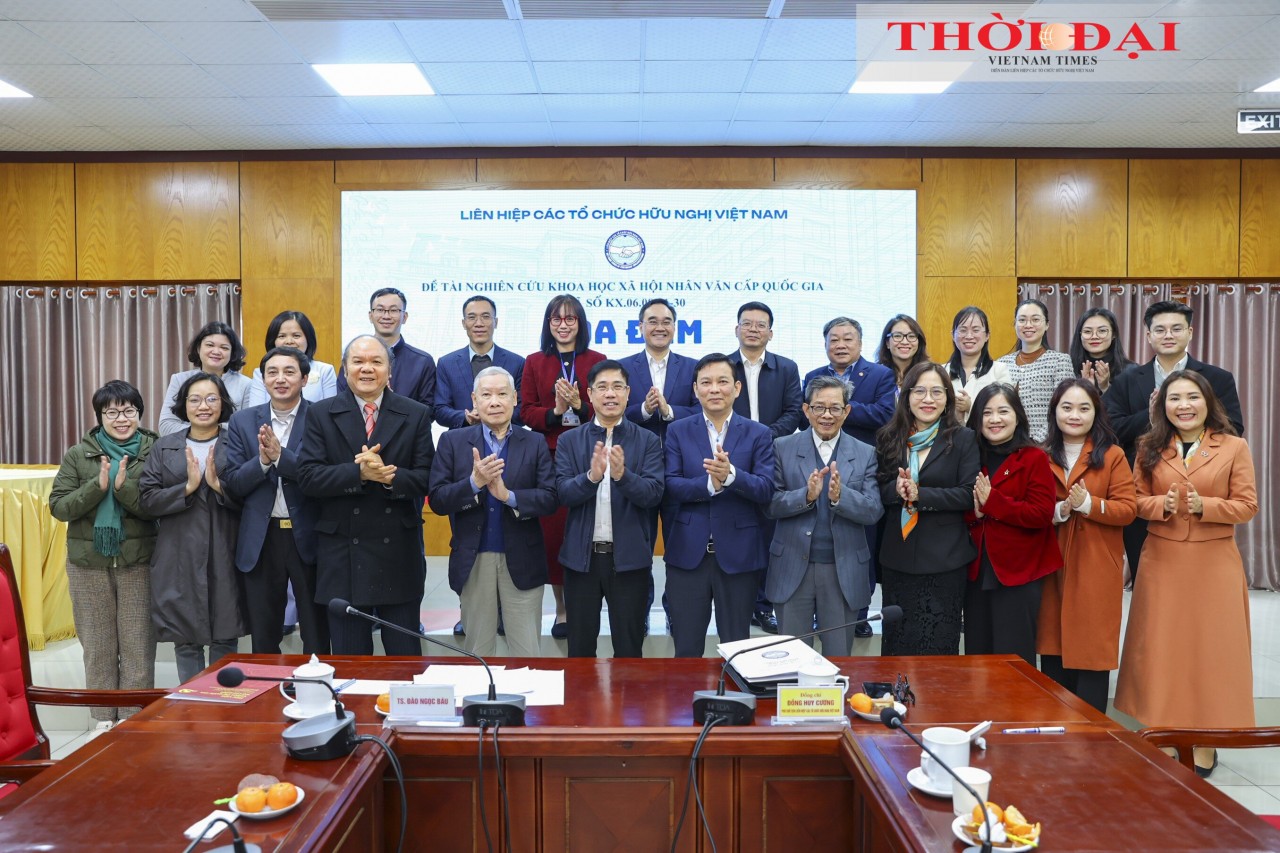 Focus
Focus
Seminar on “The Scientific Foundations of People-to-People Diplomacy in the World”
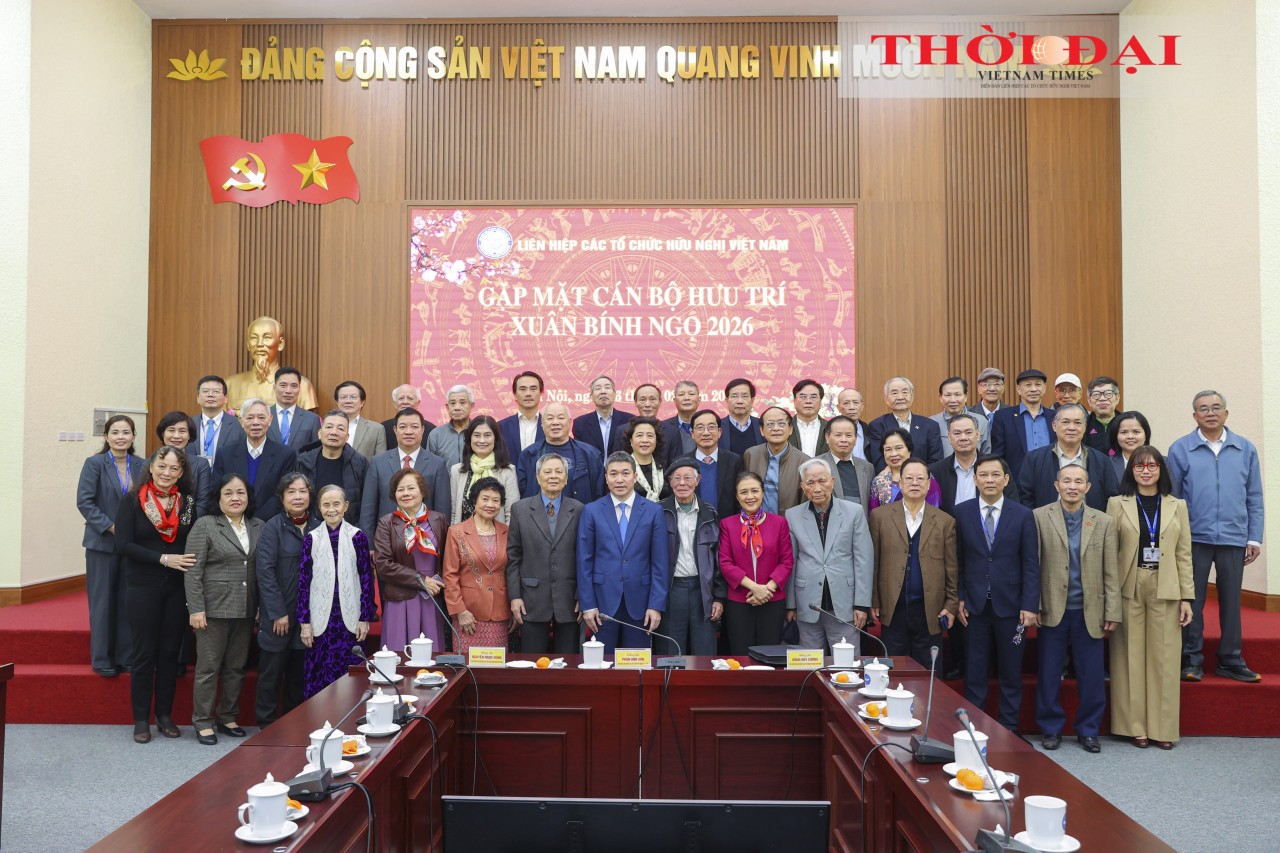 Friendship
Friendship
Viet Nam Union of Friendship Organizations: Strong Renewal in New Stage of Development
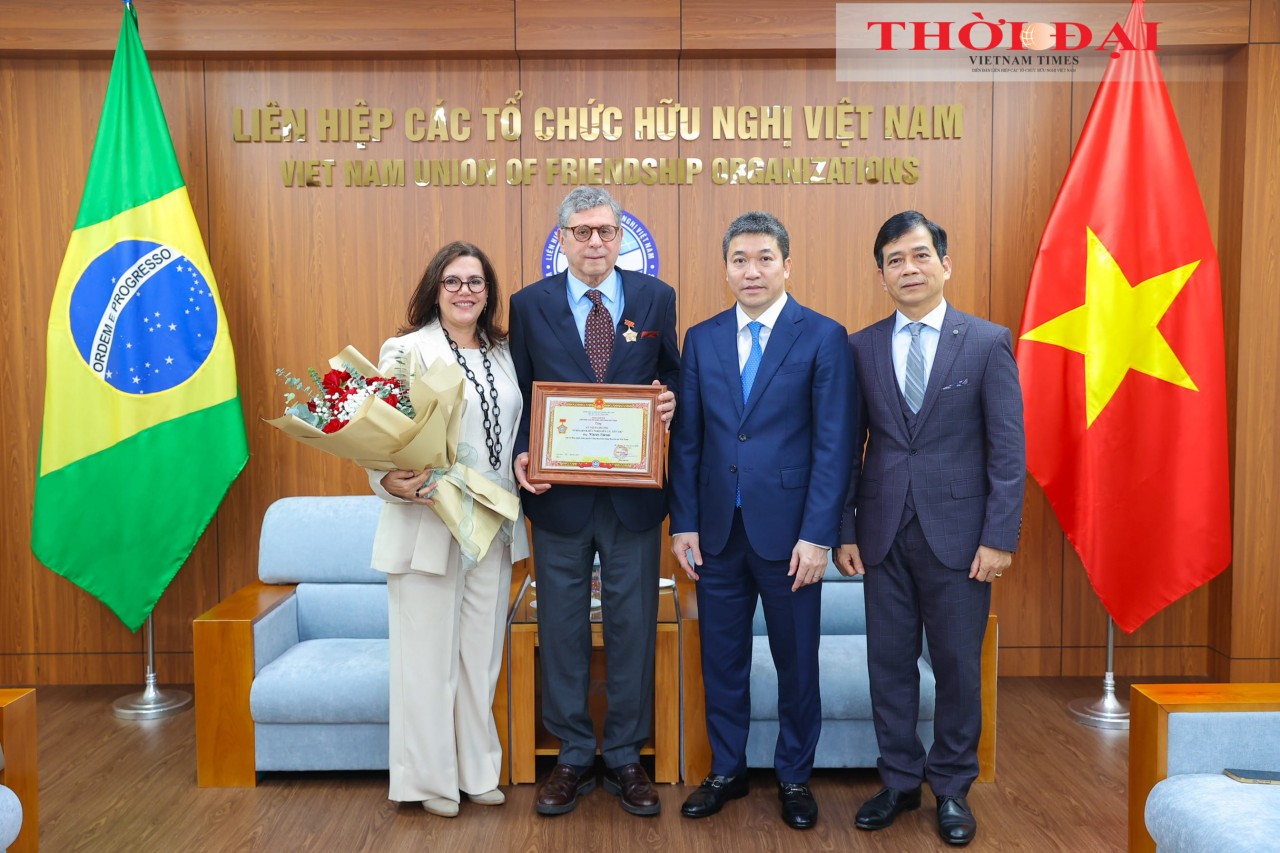 Friendship
Friendship
Recognizing Contributions of Ambassador Marco Farani to Promoting Vietnam-Brazil Relations
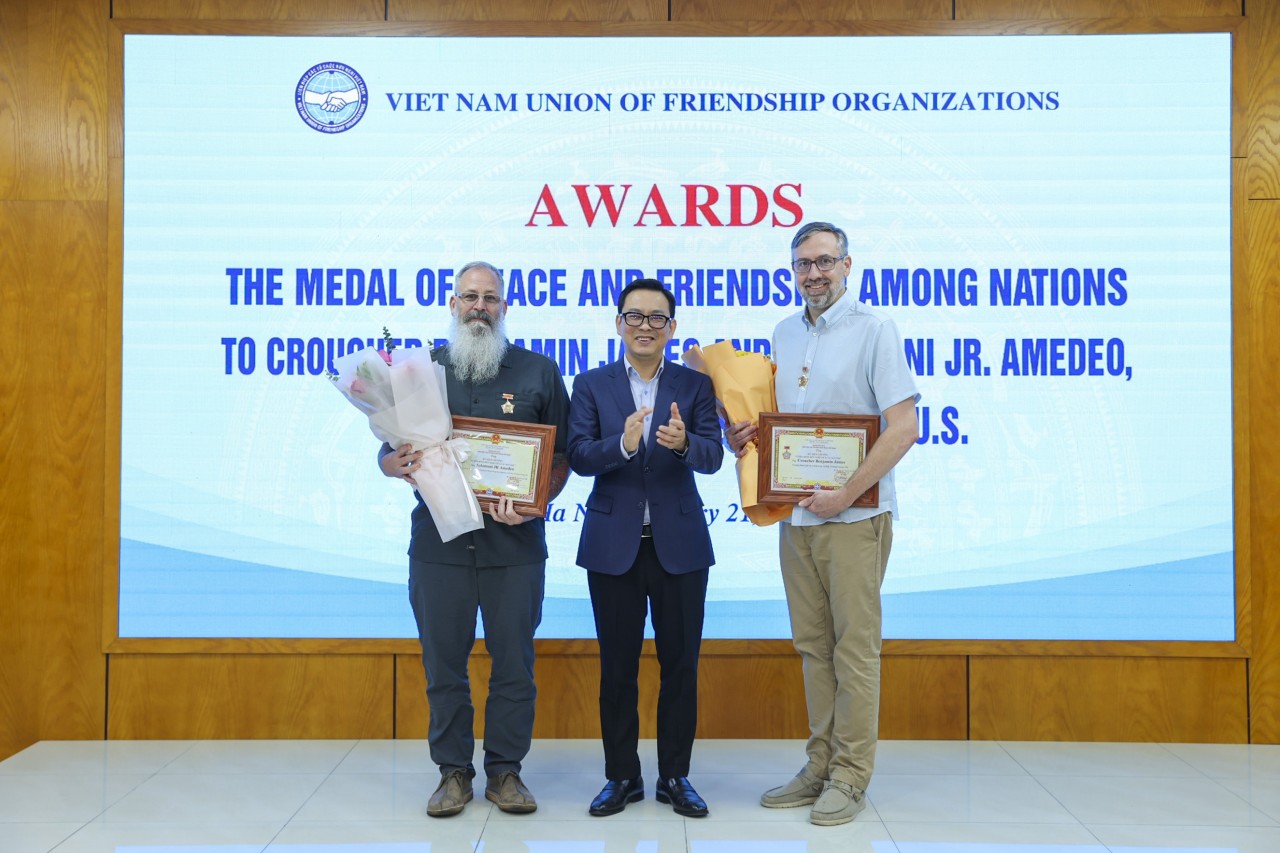 Focus
Focus
Recognizing Contributions of Two George School Teachers to Promoting Vietnam-US People-to-People Exchange
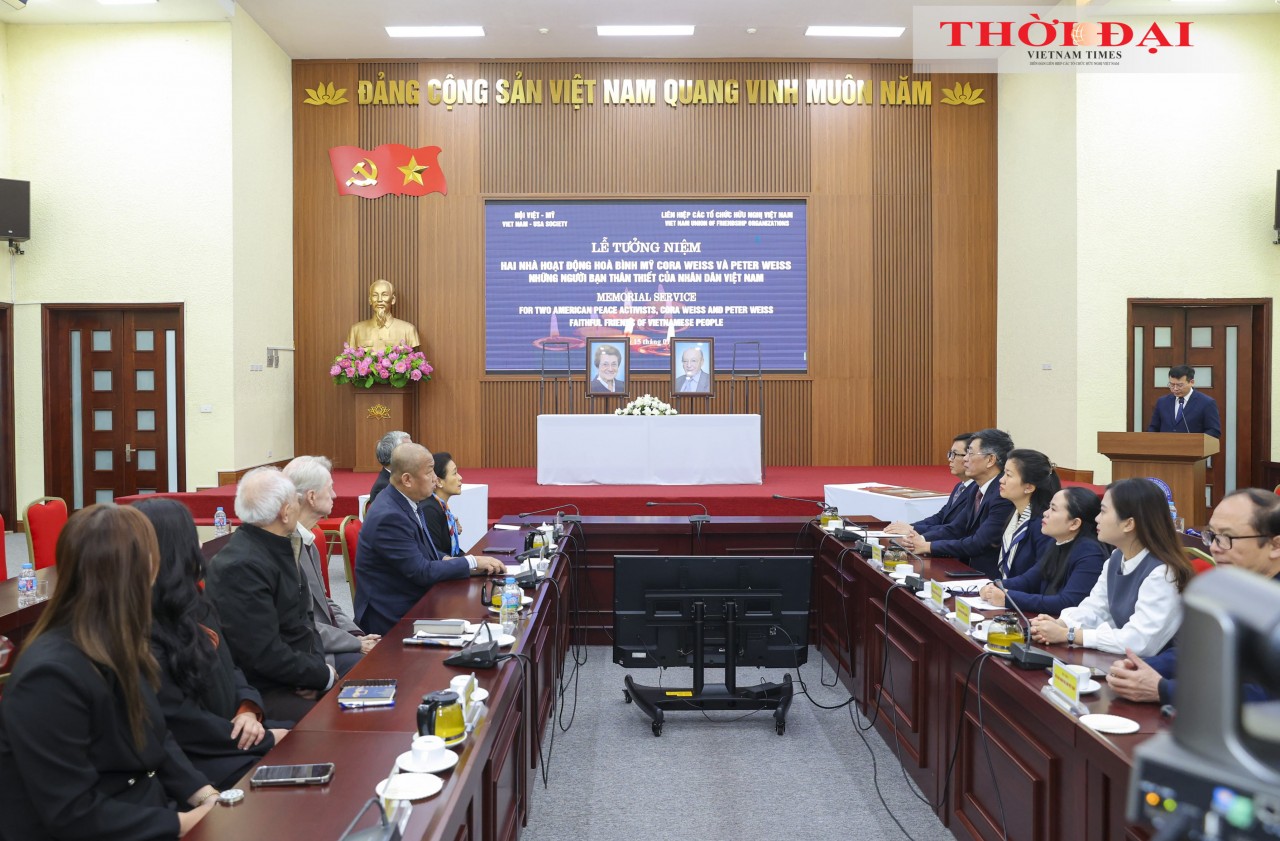 Friendship
Friendship
Memorial Service for Peter and Cora Weiss: Messengers of Conscience and Peace
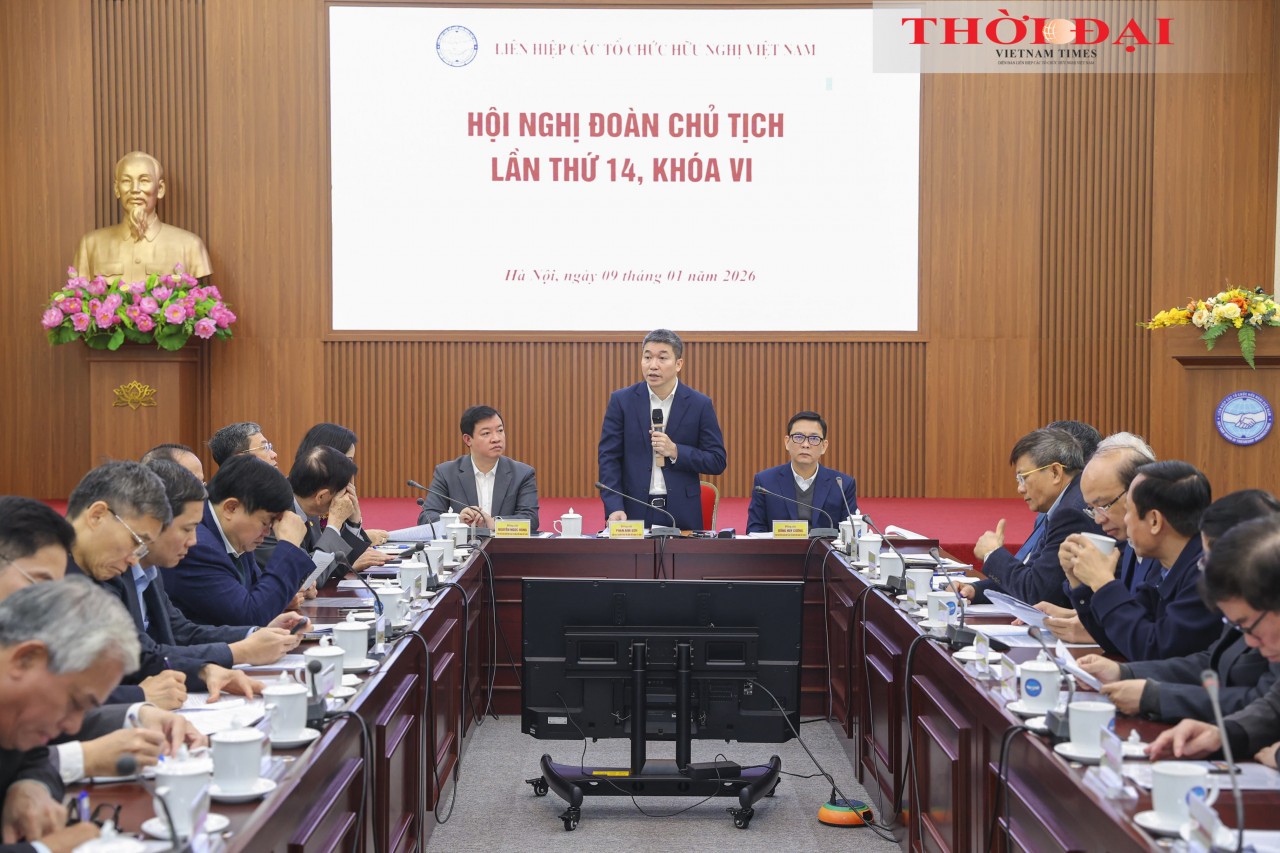 Focus
Focus

